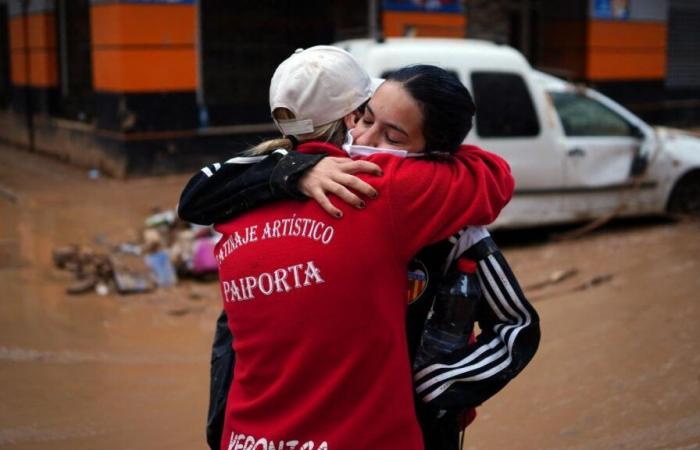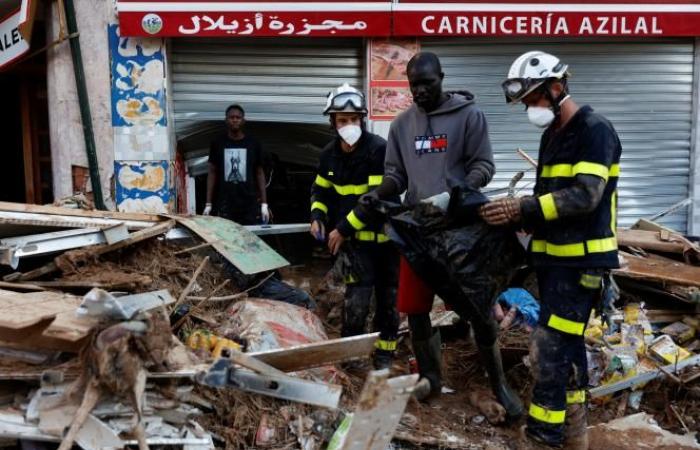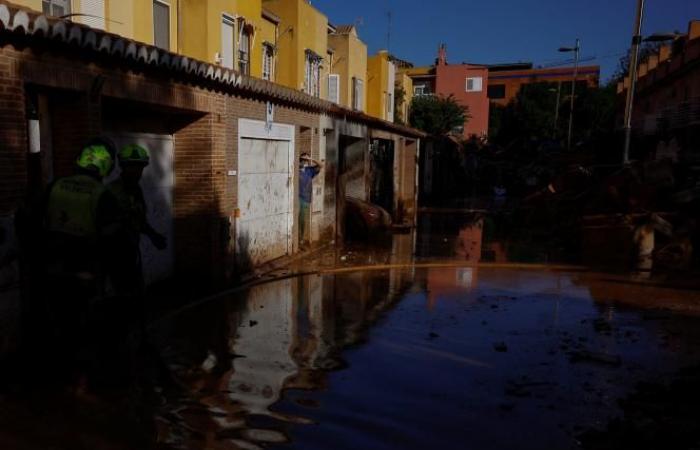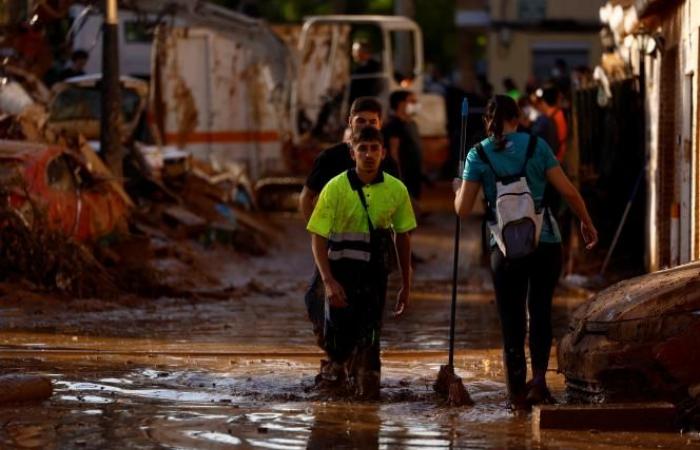Also read
Floods in Spain: “A wave broke, like a tsunami”
214 dead, many missing
According to the latest report released by the authorities on Saturday evening, 214 people died due to the floods. The vast majority of them (210) died in the Valencia region, with two other victims having been reported in Castile-la-Mancha and a third in Andalusia.
Authorities expect the toll to rise as car wrecks piled up in tunnels and underground parking lots in the worst-hit areas are now methodically examined. The exact number of missing people remains unknown at this stage.
On the ground, the population remains faced with a complicated situation, due to the damage caused by bad weather to transport and telecommunications infrastructure. In many communities, piles of sludge-covered cars and debris remain on the roadways.
“We’ve been cleaning for three days. Everything is covered in mud,” Helena Danna Daniella, owner of a bar-restaurant in Chiva, a town of 17,000 inhabitants west of Valencia, among the most affected by the floods, told an AFP journalist.
“It feels like the end of the world,” adds this thirty-year-old, who says she is still in shock five days after the bad weather. People trapped in raging waves “were asking for help and there was nothing we could do (…) It drives you crazy. We look for answers and we don’t find them.”
Also read
In Utiel in Spain, ravaged by the waves, disfigured by the mud: “Even the ancients did not experience this, never! »
Residents await reinforcements
Faced with this chaotic situation, Mr. Sanchez announced on Saturday the sending of 5,000 additional soldiers to the region, bringing their total strength to 7,500, the “largest deployment of armed forces ever carried out in Spain in peacetime”, according to him.
To these soldiers will be added 5,000 police officers and civil guards responsible for supporting their 5,000 colleagues already on the ground. An amphibious ship from the Spanish Navy including operating theaters is also expected in the port of Valencia.
Friday and Saturday, thousands of them went on foot to the most affected communities with shovels and brooms, in order to help those affected. These movements have in places hampered emergency services by blocking the roads.
This situation has led the authorities to limit access to certain localities. The Valencia government thus limited the number of volunteers authorized to go to the southern suburbs of the city to 2,000 on Sunday and restricted access to 12 localities.
Also read
Climate: risks are getting worse, Europe is challenged to adapt (infographic)
“There is nothing left”
In the suburbs of Valencia, search and cleaning operations continued on Saturday, in a heavy atmosphere.
“There is nothing left,” Mario Silvestre, a resident of Chiva who was “resigned” to seeing the damage, told AFP.
In his commune, where some 17,000 inhabitants live, there are no soldiers, but numerous civil guards responsible for patrolling the streets where many houses are destroyed. “Politicians promise a lot but help only arrives when it arrives,” breathes this octogenarian.
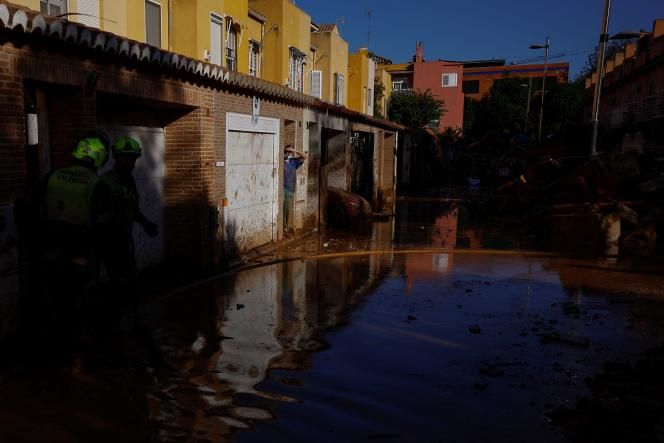
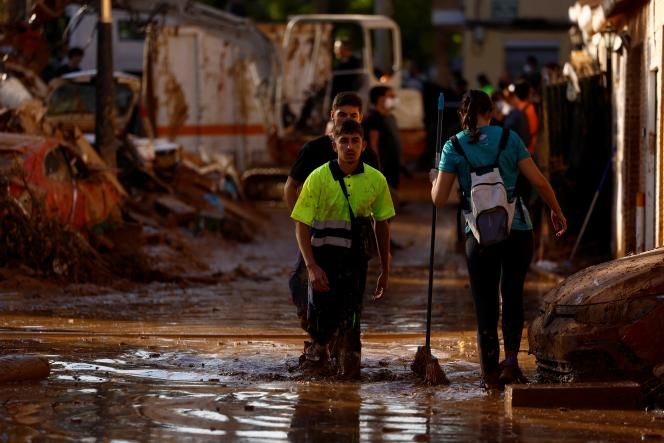
Saturday evening during a press conference, the conservative president of the Valencia region, Carlos Mazon, announced a battery of economic aid and promised the return of order, while acts of looting were reported in several stores, leading to the arrest of 82 people.
“There are people who may have felt alone, helpless, unprotected and I understand that,” admitted the elected official. But “I want to send a clear message, we are going to help all the households” who need it, he continued: “We are facing the challenge of our lives and we are going to find the solutions. »
The regional government of Valencia, and Carlos Mazon in particular, are the subject of criticism for having sent a telephone alert message to residents late on Tuesday, while the meteorological services had placed the region on “red alert” in the morning.

